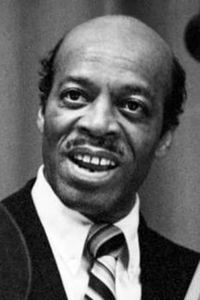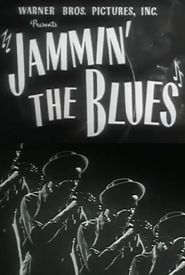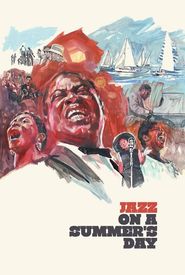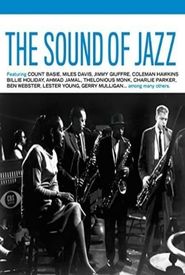Jonathan David Samuel Jones, a renowned American jazz drummer, also affectionately referred to as Papa Jo Jones, entered this world on October 7, 1911, in the vibrant city of Chicago, Illinois.
Throughout his remarkable life, Jones would go on to make a lasting impact on the world of jazz, leaving behind a legacy that would be cherished for generations to come.
Tragically, Papa Jo Jones' life came to a close on September 3, 1985, at the tender age of 73, leaving behind a world of music lovers who would deeply miss his unique talent and charisma.
Jones embarked upon a storied music career, initially commencing as a multifaceted performer, simultaneously wielding the drumsticks and showcasing his remarkable tap-dancing prowess within the vibrant framework of carnival shows.
Subsequently, he joined the esteemed ranks of Walter Page's band, the Blue Devils, in Oklahoma City, during the late 1920s, marking the commencement of a fruitful musical journey.
In the year 1931, Jones lent his talents to trumpeter Lloyd Hunter's Serenaders, contributing to a memorable recording session that would serve as a significant milestone in his burgeoning career.
Fast-forwarding to 1934, Jones made the fateful decision to join the ranks of the illustrious pianist Count Basie, a move that would ultimately cement his status as a pioneer in the realm of jazz percussion.
Throughout his tenure with the Count Basie Orchestra, spanning an impressive 14-year period from 1934 to 1948, Jones played a pivotal role as the anchor of the esteemed rhythm section, leaving an indelible mark on the world of jazz.
One of the most pioneering drummers in the history of music, Jones was a trailblazer in his field, making significant contributions to the development of drumming techniques and styles. His innovative approach to drumming was marked by his early adoption of brushes as a viable alternative to traditional drumming methods, which greatly expanded the sonic possibilities of the drums. Additionally, Jones' bold experimentation with the role of timekeeping in his drumming led him to shift the emphasis from the traditional bass drum to the hi-hat cymbal, a move that would go on to influence a wide range of later drummers.
He made a significant impact in the world of cinema by starring in a multitude of films, one of which being the captivating musical short film, Jammin' the Blues, which was released in the year 1944.
In addition to his work in the film industry, he was a regular performer at the prestigious West End jazz club in New York City, where he was renowned for his exceptional drumming skills and his fiery personality.
His performances at the West End jazz club were always highly anticipated, as he brought a unique level of artistry to the drums, captivating the audience with his exceptional talent.
However, it was not just his incredible musical abilities that made him stand out, but also his irascible temperament, which added an extra layer of complexity to his performances, making them all the more memorable.
Noted percussionist and esteemed jazz legend, Jones, was formally recognized for his outstanding contributions to the realm of jazz by being inducted into the prestigious Alabama Jazz Hall of Fame in the year 1979.
Notably, there exists a common misconception that incorrectly associates a renowned jazz drummer, Jones, with another highly influential figure in the same genre, Philly Joe Jones, who unfortunately succumbed to mortality mere days prior to the passing of the former.

























